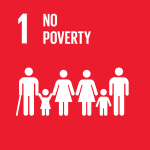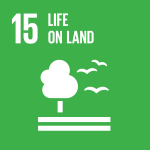
Photo:
Roughly 75% of Somalia’s 14.7 million people live in rural areas, with approximately 60% practicing pastoralism and 15% practicing agriculture. Less than one third of the population has access to clean water.
Climate change is now bringing more frequent, higher intensity droughts and floods, reducing already scare water supplies. Lack of water poses a serious threat to the health, wellbeing and livelihoods of farming and pastoral communities and limits Somalia’s overall economic and social development. Women in rural areas are particularly vulnerable.
Working with a range of development partners, as well as traditional leaders, women’s groups, local NGOs and community-based organizations, this four-year project (2019-2023) aimed to increase Somalia’s capacity to manage water resources sustainably in order to build the climate resilience of rural communities.
The project focused on:
- National policy reform and development of integrated water resource management (IWRM)
- Capacity-building at the national, state, district and local levels
- Infrastructure for improved climate and water monitoring
- Capture and sharing of best practices on IWRM.
The project also provided training for pastoralists and small-scale farmers, men and women, on how to sustainably produce farming and livestock products.
- Community
- District
- National
- Country Office
- Local Governments
- National Governments
- Non-Governmental Organizations
- United Nations Development Programme (UNDP)
Over 360,000 farmers and pastoralists across Somalia
- Directorate of Environment and Climate Change, Office of Prime Minister
- Ministry of Energy and Water Resources, Somalia
- United Nations Development Programme (UNDP)
- Global Environment Facility (GEF)
- Image

- Image

- Image

- Image

Water scarcity is a serious threat to Somalia, hindering economic and social development. Throughout the country, surface water and groundwater reserves are decreasing, while the frequency of droughts and floods is on the rise.
In response, this project directly supports integrated water resources development and management for over 360,000 farmers and pastoralists.
The development of a multi-sectorial IWRM Strategy conbined with technical and operational capacity development will support Somalia in planning sustainable water resources development schemes for all states down to the local level, particularly for states that formed as recently as 2015 and 2016.
The project will invest in monitoring infrastructure, including automatic weather stations, manual rain gauges, synoptic stations and radar river-level sensors, which will provide critical data for early warning dissemination in both arid regions and in key river basins to improve water resources management and contingency planning for farmers and pastoralists, including nomadic pastoralists. Currently the government lacks the capacity to put out timely early warnings and accurate hydrological information to support communities in the efficient and economic management of water.
Water mobilization from a diversified source of groundwater and surface water sources as well as construction of water diversion infrastructure will promote rural water supply and increased resilience in flood-prone areas. The resilience of rural populations will be further enforced by enabling them to exploit their agro-pastoral value chains and increase their asset bases.
The project builds on existing initiatives, including the Integrated Drought Management Program in the Horn of Africa, the Somalia Water and Land Information Management service, the Joint Programme on Local Governance and Decentralized Service Delivery, the New Deal Compact and support provided by the Red Cross and Red Crescent Climate Centre to improve weather and climate forecasting.
Component 1: National water resource management policy establishing clear national and state responsibilities
Outcomes
- Policy, legislative and institutional reform for improved water governance, monitoring and management in the context of climate change
- Strengthened government capacities at national and district levels to oversee sustainable water resources management
Component 2: Transfer of technologies for enhanced climate risk monitoring and reporting on water resources in drought and flood prone areas
Outcomes
- Improved water resource data collection and drought / flood indicator monitoring networks in Somalia’s Arid and Semi-Arid Lands (ASALs)
- Strengthened technical personnel from the National Hydro-Meteorological Services in IWRM and flood and drought forecasting
- Better understanding of the current hydrological and hydrogeological situation
Component 3: Improved water management and livelihood diversification for agro-pastoralists
Outcomes
- Reduced vulnerability for agro-pastoralists to water resource variability through investment in water resource management infrastructure and training on the livestock value chain
- Increased awareness of local communities on rainwater harvesting, flood management and water conservation during rainy seasons
- A national groundwater development action plan that will increase access to water for pastoral communities in drought affected areas taking into consideration aquifer characteristics, extent, location, recharge, GW availability and sustainable yields
Component 4: Gender mainstreaming, knowledge management and Monitoring and Evaluation
This component will focus on documenting best practices and spreading lessons learned on IWRM, effective hydro-geo-meteo monitoring and early warnings as well as agro-pastoral livelihood value chain skills transfer.
This will be done by first conducting a baseline study, including evaluating existing laws, policies and curriculums to determine how the existing position and status of women and youth can be improved with regards to water resources management.
The project will demonstrate the evolution of all gender-disaggregated baseline indicators and the mainstreaming of gender in all trainings and activities.
Included in this component will be stakeholder workshops in all 15 target villages.
All training materials will be collected and stored by the project’s M&E / KM expert and will be housed on an open-access database for all relevant government representatives, universities and NGOs/CSOs in all 6 states.
Project results are monitored annually and evaluated periodically during project implementation in compliance with UNDP requirements as outlined in the UNDP POPP and UNDP Evaluation Policy.
Additional mandatory GEF-specific M&E requirements are undertaken in accordance with the GEF M&E policy and other relevant GEF policies.
Supported by Component/Outcome Four (Knowledge Management and M&E) the project monitoring and evaluation plan will also facilitate learning and ensure knowledge is shared and widely disseminated to support the scaling up and replication of project results.
Further M&E activities deemed necessary to support project-level adaptive management will be agreed during the Project Inception Workshop and will be detailed in the Inception Report.
The Project Manager is responsible for day-to-day project management and regular monitoring of project results and risks, including social and environmental risks. The UNDP Country Office supports the Project Manager as needed, including through annual supervision missions.
The Project Board holds project reviews to assess the performance of the project and appraise the Annual Work Plan for the following year. The Board will take corrective action as needed to ensure results.
In the project’s final year, the Project Board will hold an end-of-project review to capture lessons learned and discuss opportunities for scaling up and to highlight project results and lessons learned with relevant audiences. This final review meeting will also discuss the findings outlined in the project terminal evaluation report and the management response.
The UNDP Country Office will retain all M&E records for this project for up to seven years after project financial closure in order to support ex-post evaluations undertaken by the UNDP Independent Evaluation Office and/or the GEF Independent Evaluation Office.
Key reports:
- Annual GEF Project Implementation Reports
- Independent Mid-term Review and management response
- Independent Terminal Evaluation





